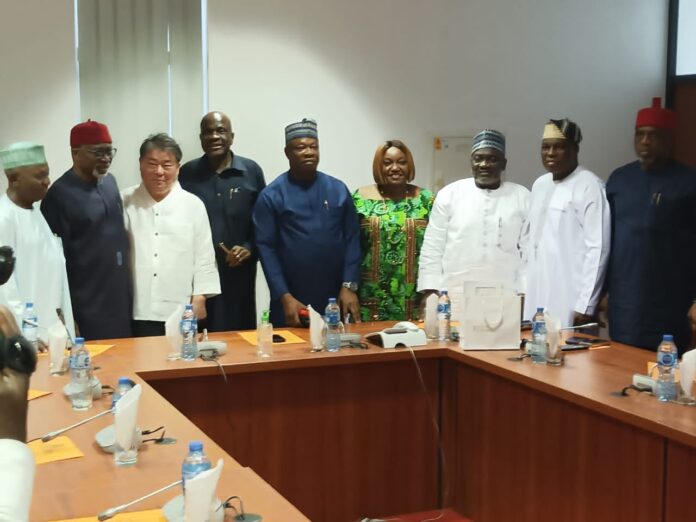The Senate, through its Committee on Power, is considering a partnership with South Korean energy company BK Energy.
The goal is to find solutions for Nigeria’s persistent grid collapses and the resulting power outages.
Investment Discussions with BK Energy
On Monday, Senator Enyinnaya Abaribe, Chairman of the Committee, introduced the idea while meeting with a BK Energy management team visiting Nigeria for investment opportunities.
During the meeting, Abaribe urged the investors to present practical solutions. He emphasized the importance of adopting innovative technologies that could help stabilize Nigeria’s electricity grid and improve power reliability.
Proposed Mini-Grid Approach
BK Energy executives Haeagwoo Lee and Sangwoo Park suggested a decentralized mini-grid system as an alternative to Nigeria’s centralized power grid.

They cited South Korea’s model, where 50 million people benefit from 130,000 megawatts of electricity without overloading a single central grid. They stressed that decentralizing power transmission could help Nigeria reduce inefficiencies, prevent waste, and minimize grid collapses.
Renewable Energy Opportunities
The South Korean team also highlighted Nigeria’s potential for renewable energy production. They pointed out that coconut trees, which are abundant in Nigeria, could be used to produce Graphene, a material for power generation. South Korea has already adopted this technology, which could be replicated in Nigeria to enhance energy sustainability.
Nigeria’s Shift Towards Green Hydrogen
Earlier, Uzo Udemba, Chairman and CEO of TUG Energy, introduced Green Hydrogen as a transformative energy solution for Nigeria. He explained that many nations are moving away from traditional national grid models to decentralized power storage and distribution systems. This shift aims to prevent frequent grid failures, which remain a major challenge in Nigeria.
Udemba added that BK Energy plans to establish factories in Nigeria to manufacture power equipment and train local engineers. By investing in production facilities, the company aims to build Nigeria’s capacity in power generation, transmission, and distribution while reducing dependence on foreign imports.



